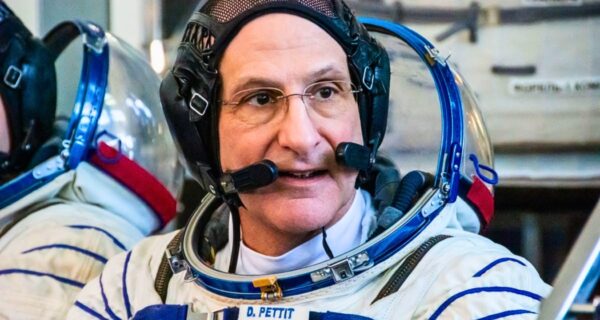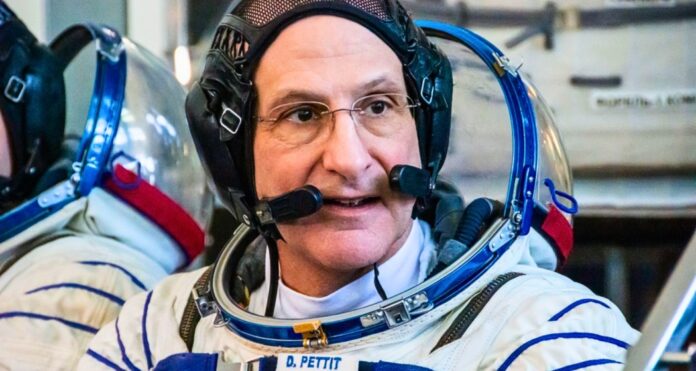KAZAKH STEPPE – In a remarkable confluence of cosmic milestones and terrestrial celebrations, NASA astronaut Dr. Michael Pettit, the United States’ oldest active astronaut, touched down safely on Earth today – his 70th birthday. After a 220-day mission aboard the International Space Station (ISS), Dr. Pettit and his Russian crewmates, Alexey Ovchinin and Ivan Vagner, landed in the Soyuz MS-26 capsule on the vast plains of Kazakhstan, marking the end of their seven-month research expedition.
The landing, which occurred under clear skies in the early morning hours local time, brought to a close a mission that saw the trio orbit Earth an astounding 3,520 times, traversing a distance of over 93 million miles. For Dr. Pettit, this mission was his fourth journey into space, bringing his cumulative time spent orbiting our planet to an impressive 590 days – just shy of nineteen months.
While Dr. Pettit holds the distinction of being the oldest active U.S. astronaut, he does not hold the record for the oldest person to ever venture into space. That honor belongs to the legendary John Glenn, who flew on the Space Shuttle Discovery at the age of 77 in 1998.

Dr. Pettit, born in Oregon on April 20, 1955, celebrated his milestone birthday in a truly unique fashion, hurtling through the atmosphere aboard the descending Soyuz capsule. Images released by NASA showed the small spacecraft parachuting gently onto the Kazakh steppe against the backdrop of the rising sun.
Upon landing, the crew appeared to be in good spirits, offering thumbs-up gestures as they were carefully extracted from the capsule by recovery teams and transferred to a mobile medical unit for initial check-ups. NASA reported that Dr. Pettit was “doing well and in the range of what is expected for him following return to Earth.”
During their extended stay on the ISS, Dr. Pettit and his crewmates conducted a wide array of scientific research, contributing to advancements in areas such as in-orbit metal 3D printing, water purification technologies, the study of plant growth in microgravity, and the investigation of fire behavior in the unique environment of space.
Following their initial medical assessments in Kazakhstan, Dr. Pettit will be flown to NASA’s Johnson Space Center in Houston, Texas, where he will undergo a period ofReadjustment to Earth’s gravity. His Russian colleagues will return to the Zvyozdniy Gorodok cosmonaut training facility in Russia.
Dr. Pettit’s return marks the end of another successful ISS mission and highlights the dedication and endurance of astronauts who spend extended periods in the demanding environment of space. His remarkable achievement of returning to Earth on his 70th birthday serves as an inspiring testament to the human spirit and the enduring quest for exploration beyond our planet.
